- Home
- Scott Turow
KC09 - Identical Page 24
KC09 - Identical Read online
Page 24
Yet what he’d missed before was the scar. Beneath the bracelet, reaching from the back of her wrist upward a good six inches, there was a line of shiny, whitish flesh. The scar looked like a river running through a topical map, wiggling a bit within neat margins. It was the scar, he suddenly realized, not the bracelet, that preoccupied her.
“Where did you get that mark on you, sweetheart?” he asked.
Lidia slowly raised her arm to study it.
“Oh, that,” she said. “I cut myself.”
“How? You recall?”
She contemplated, then repeated her mantra about her stroke. But she never lowered her arm.
“And who sewed it up for you?” From the even look of the scar, and the faint little puckers on either side made by the sutures, it appeared that a surgeon had closed that wound. When Zeus brought Tim on to the investigation of Dita’s killing, the investigators, in the midst of their infighting, still hadn’t checked the ERs for cut cases the night of the murder. Tim spread the canvass to every hospital for thirty miles. Naturally they discovered several bad lacerations treated that Sunday night and the next morning, but none of those patients proved to be of any interest.
Tim touched the scar gently.
“Sure looks like you had a doctor for that.”
“I think it was that girl,” Lidia said, the limb still aloft. Tim took her hand and lowered it, before her arm started to hurt.
“Which girl is that, sweetie?”
“You know her.” She smiled at Tim, as if he were playing a game. “So smart. Such a nice girl. She became a doctor.”
Tim tried to recall when Sofia Michalis got back to town after med school. Then he remembered Georgia’s complaints about the attention Paul had paid Sofia at the picnic.
“It turned out OK for her,” Tim said. “Was that who did your stitches there? Sofia?”
Lidia tried to hold the thought, but shook her head.
“I don’t know anyone by that name,” Lidia said. She apologized again about her stroke.
“Sofia is the woman Paul married.”
“Oh yes. Paul is a big deal. Everyone loves him.”
“Any chance, Lidia, you got that cut at Zeus’s house?”
She looked again and this time touched the patch of smooth skin.
“Did I?” she asked. The idea seemed to make sense to her. From the dark contraction of her irises, he could see her struggling. “My memory is not very good.”
“Did that happen before or after you hit Dita?” he asked her.
In response to the question, a slim fragment of mental agility again returned to her, just long enough to set something off, some kind of alarm perhaps. She reared back, then began rotating her head and her thin floss of gray hair.
“Did you hit Dita?” he asked her.
“Who is that?” she asked.
“Zeus’s daughter. The girl Cass was seeing. Did you end up hitting her, Lidia?”
Her head went side to side for quite some time, more in sorrow, it seemed, than disagreement.
“I really can’t talk about that,” she said.
“And why not?”
“Oh, it’s such a long time ago. Do I know that man?” She was pointing at Sam Waterston on the TV.
“Did you hit Dita, Lidia.”
“I don’t know about that,” she said. “You should ask my sons. They know better than me.”
He was going to quarrel with the evident logic of that—how would her sons know better than she whom she’d walloped?—but there was a more focused manner in the way she was shaking her head around, determined, as it were, to let go of the bad thought. He’d promised himself he was going to treat Lidia with dignity and avoid upsetting her. He was nearing the end of what either one of them could tolerate.
“Lidia, did you kill Dita Kronon?”
She stared at Tim. “Do I know you?”
He reintroduced himself and she explained about her stroke.
“Who killed Dita Kronon, Lidia?”
“Oh, that was all so sad,” she said. For a moment, worry consumed her time-whittled face. “That girl was no good.”
“The daughter? Dita?”
“She had a terrible tongue in her mouth.”
“And did you kill her?”
“Oh no,” she answered, as if the idea were as laughable as if Tim had asked if she’d made a recent visit to Jupiter. She stopped for some time, turning her wrist as she sorted through the strange rush of ideas.
“You sure you didn’t kill her, Lidia?”
The question this time brought about a mercurial change. Her brow closed and her look became sharp, even fierce, as that lingering remnant of the darkly determined woman of decades ago once more asserted itself.
“They just never believe me,” she said. “They never believe me.”
“Who doesn’t, dear?”
“You can just go away. I’m tired of all of this. I don’t know who you are, and you’re just asking all these questions to embarrass me. You can go away. Who are you anyway?” She cast a look at the door. “What is that girl’s name?”
“Eloise?”
She shouted for Eloise. When the attendant didn’t appear promptly, Lidia, with no warning, grabbed the remote for the television and threw it at Tim. He got a hand up partially, but it clipped his scalp. In the meantime, Lidia leaned over her chair and swung at him with a closed fist. She didn’t come close. Shocked, he’d risen to his feet and was backing away. Lidia was screaming that she didn’t like him when Eloise finally came through the door.
“I don’t like this man and I don’t know who he is.”
He fled the room and waited in the hall while Eloise summoned another attendant, a little Filipina who couldn’t reach five feet with a hand over her head. She seemed to have a good way with Lidia and Eloise left the two of them while she walked Tim out.
“She get like that some, but she is really such a sweet lady mostly. Funny thing, though. Must have been she had a little of that in her somewhere along. The doctors all say they just don’t know. Some of them, those bad traits come out, some the Alzheimer just change them completely.”
“No worries,” said Tim. “She kept looking at her right wrist.”
“She do like that, hundred times a day. Them boys always giving her jewelry, so she got something to see.”
Tim nodded. The twins gave her the jewelry so people would think Lidia was fixated by the gems, rather than the scar.
“She ever say where that scar on her wrist came from?”
“Broke a window, she said once. You know, they tell you one thing one day and something else tomorrow.”
“But she is right-handed, isn’t she?”
“Oh yeah. Some of them dements, they forget so much they don’t even know which hand to use to pick up a spoon. But she ain’t like that. She use that right hand for everything.”
“How long have you taken care of her?”
“Lidia? Oh, it’s three, four years at least. She wasn’t so bad when she come in here. Only thing was she could never keep those boys straight. Sometime she tell me Paul was here and sometime she call him Cass. But these days she don’t hardly recognize either one. Lots of times she call them something else entirely once they gone.”
“And what might that be?”
Eloise stopped. “What is that name? She’s sayin it all the time.” Eloise touched the wooden support rail that ran along the wall as if it might help her recollection. “Brings me in mind of something whenever she do it.” One hand shot up when her memory finally sparked. “Oh, I know. It’s one of them cartoons my grandkids watch. Fella always got lightning in his hand, this character.”
Tim got it quickly. “Zeus?”
“Zeus!” She beamed. There was a good deal of gold in Eloise’s mouth. “That’s who she tell me come visit. More than once. Must be they resemble him some to her mind.”
Once he was home, Tim paged through his files until he found the bundle of clippings from Dita’s
murder. There were photos of Zeus in nearly every story. Then Tim called up Paul’s campaign site. It was ridiculous, frankly, when you looked at it, the resemblance he and so many other folks never saw, let alone remarked on. The shape of the face differed a bit but the three men shared the same nose and hair and mouth and eyes. What had Mickey made of their looks? Probably nothing. People didn’t see what they didn’t want to. Was that the hardest part of life, to look at it fresh and without preconceptions? Or would it just be unbearable chaos that way?
The next morning Tim went out to McGrath Hall to deliver Lidia’s fingerprints. McGrath had been the police headquarters since 1921. The red stone heap might have passed for a medieval fortress, with stone arches over the massive planked oaken doors and notched battlements on the roof. When Tim was on the Force, he had hated the place, because he only got called down for somebody to bust his chops over something he could do nothing about. Then his last year and a half as a cop, they made him acting chief of Homicide, a job he never asked for, and gave him an office here. The gossip and intrigue that swirled through the halls was like a maelstrom that was just going to suck him down, and he often wished he could come and go in disguise. The milieu of the place became a big part of what had driven him into retirement.
Dickerman’s office was in the basement of the building. If the brass had their way, Mo would have been situated halfway to China. They hated him, because Mo was always using his eminence to bend them backward with threats to raise a public ruckus if they wouldn’t buy a new piece of equipment or software he wanted. The higher-ups thought, often with good reason, that the money could be better spent on other aspects of policing. But on a force that like most urban departments was frequently mired in controversy, if not scandal, Mo and his worldwide reputation were assets they could not afford to dispense with.
“How was Hollywood?” Tim asked when he arrived. Mo’s lab down the hall was huge and state-of-the-art, but his small office was barely big enough for his desk and his metal filing cabinets. His garden windows were half-height and emitted only the barest light through the wells.
“Those people,” Mo answered, but said no more.
Mo had retained possession of the original lifts from Dita’s room, because Mo’s travel schedule had kept Tim from picking them up. He handed over Lidia’s prints now. Mo had insisted on negotiating a new contract with Tooley, which acknowledged that this examination wouldn’t utilize any of the prints Judge Lands had ordered returned to other parties. Mo was a stickler, knowing that there were plenty of people in the county who’d use any controversy, especially in his outside employment, as a reason to oust him. He promised to begin the print comparison that night. He was one of those widowers who minimized his time at home.
“You know,” Tim said, “I never got to ask you about that thing with Cass’s prints from Hillcrest. Last time we talked, you were wanting to get a look at Paul’s ten-card, because you thought Cass’s intake prints at Hillcrest didn’t match the crime scene.”
Mo looked through his heavy frames for some time and then got up to shut the oak door. It had an old-fashioned frosted wired pane in the middle on which Dickerman’s name was printed in block letters.
“You remember that day last month when Lands whistled me up to the bench to report on my findings about Paul’s prints?” Mo asked.
“Sure.”
“I nearly wet my socks. I was just waiting for him to ask me the wrong question and I’d look like Ralph Kramden. You know, ‘Humanah humanah.’”
Tim laughed. It wasn’t a bad imitation of Jackie Gleason.
“I thought you said Paul’s prints didn’t match the crime scene.”
“They don’t. Now that I’ve finally gotten a look at Cass’s ten-card, I can exclude even the inconclusives.”
“And what about Cass himself?”
“You remember a few days after Greenwood finally found Cass’s prints and sent them over here, Lands said I had to give them back. Stern had an associate hie out this way to carry the card back to Greenwood County that afternoon. What does that tell you?”
“Maybe there was something they didn’t want you to figure out. Maybe Cass’s prints don’t match the crime scene either?”
“They do. With all the craziness in this case, that wouldn’t have been a complete surprise. But the minute I got that card, I looked at everything. Cass’s prints were all over Dita’s room, just the same as Logan said back in 1983, including the outside knob of the French door.”
“So what was the big deal?”
Mo looked away and poked his tongue to his cheek.
“It’s been a while, I’ll tell you, since I was sitting up at night thinking about a case. I was ready to hire a brass band when Lands finally entered the dismissal.”
At his age, Tim now and then found himself having unpredictable lapses, where he simply couldn’t follow the loops of an ordinary conversation. That seemed to be happening now.
“I’m not catching the drift, Mo. Cass’s prints are all over Dita’s room and Paul’s aren’t. What’s strange?”
Dickerman wiped his lips with his whole hand.
“It’s that print card from Hillcrest.”
“What about it?”
“Well, as soon as I got Cass’s original impressions from Greenwood, I compared them to the prints from Hillcrest, and I know that’s a laser copy, and there’s no evidentiary value, but those are not Cass Gianis’s fingerprints—the ones from the institution? They look a lot alike, but in the minutiae, there are distinct differences.”
“Are you saying they’re Paul’s?”
Mo took quite some time before saying yes. “From everything I could see, the answer is yes.”
Tim felt his mind spinning like a tire trapped in the snow.
“What the hell?” Tim finally said.
“I know. I was standing right there. I was looking Paul Gianis in the face when I took his fingerprints. You saw me do it. But the prints I took in the courthouse match the prints from Hillcrest.”
“Jesus,” said Tim.
Mo pointed. “Same rules: Not a word to anybody. If this ever got out, Horgan and Stern would have to come after me. They’d make a stink that I was looking at stuff I should have returned, and they’d say my opinion is a sign of incompetence. I don’t need any of that.”
Tim promised. He knew Mo had arrived at the wrong conclusion about Paul’s fingerprints, he just couldn’t figure out why. You could see even Mo was of the same mind.
26.
The Deal—March 20, 2008
Marlinda Glynn, a sharp young woman who’d taken a semester off from the University of Iowa to work on the campaign, was holding out his cell phone when Paul reached the backstage area at the West Town Community Center. They’d tried a morning town hall, but there couldn’t have been more than twenty-five people here, most of them elderly folks who’d arrived largely to alleviate boredom. He was hoping the call was from Peter Neucriss. Peter was an old friend, and the most successful plaintiff’s lawyer in this part of the world. Paul was going to beg him for another hundred thousand. Peter had already produced close to two fifty, bringing in checks in the names of every member of his family and his firm. When Peter said no, as Paul expected, he’d know for sure what was written on the wall.
“This guy says he’s Hal Kronon,” said Marlinda.
“Joke?” Paul asked.
“I don’t think so. It really sounds like him.” Marlinda had been there the day of Hal’s tirade at the pardon and parole hearing. “And his secretary was on the line first.”
Paul took the phone as he walked to the car.
“It’s Hal,” said Kronon, with an easy tone that made it seem as if the intervening decades of nastiness were simply stagecraft meant to obscure the fact that they were actually the best of friends.
“So I was told. Mind if I ask how you got my cell?”
“I have people who can get that kind of information in five minutes. There’s this thing called th
e Internet.”
Paul smiled in spite of himself.
“I’d like to have a sit-down with you,” Hal said. “Just the two of us.”
“Are we going to discuss the size of the contribution you’re planning?”
Hal laughed, which Paul might not have expected.
“Not exactly. Take the meeting, Paul. I won’t be wasting your time.”
They agreed on 2:30, after lunch. Neither wanted to be seen with the other, so Hal suggested the building office at West Bank Mall, Zeus’s original shopping center, and still one of the most successful in the nation. The place covered a square mile, the white brick buildings connected by networks of open walkways. To compete with the indoor malls, Hal placed heat torches outside in the winter and misters for summer’s dog days, and even hired kids to escort shoppers under umbrellas when it rained. And the center thrived. You were lucky to find a parking space within four blocks of the store you wanted to visit.
Paul was still bewildered about why mall shopping had emerged as Americans’ most thrilling pastime, as if coming back with several bags full of soft goods were the equivalent of big-game hunting. Whenever he was at a place like this, he wondered what we’d done wrong as a nation to make acquisition seem pleasing to so many. There was a kind of resignation to the activity that bothered Paul the most. He had nothing against leisure. It was a proud achievement that we’d given people time away from labor. But why shop, instead of garden or ride a bike?
He might have questioned the lines of folks passing by, if he thought they would have answers. He was wearing sunglasses, but was often recognized. People stared for the most part, but two couples stopped him, one to encourage him, the other to have their picture taken, much as they would have if he’d been walking along dressed up as Donald Duck.
He found the building office, a low freestanding structure. A young woman showed him back to a conference room with a cheap table and a few chairs. Hal was sitting on one of them. He rose and offered his hand for the first time in twenty-five years. Paul took it after some hesitation, then both men sat down.

 Testimony
Testimony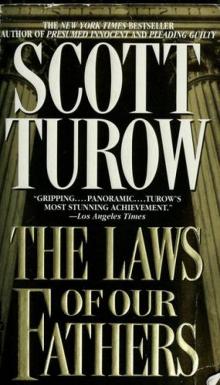 The Laws of Our Fathers
The Laws of Our Fathers Ordinary Heroes
Ordinary Heroes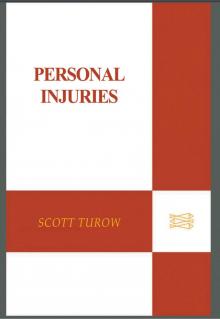 Personal Injuries
Personal Injuries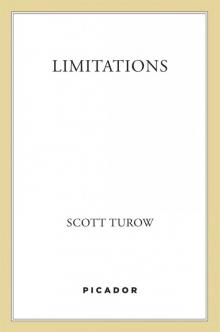 Limitations
Limitations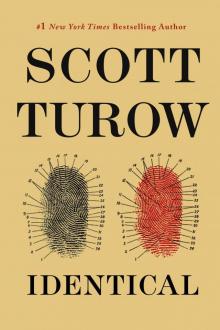 Identical
Identical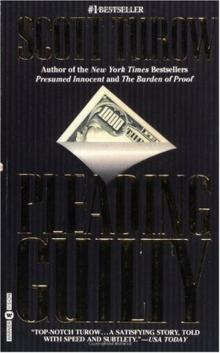 Pleading Guilty
Pleading Guilty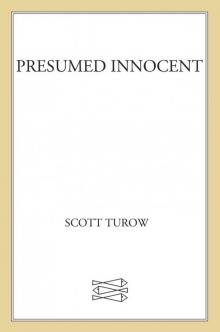 Presumed Innocent
Presumed Innocent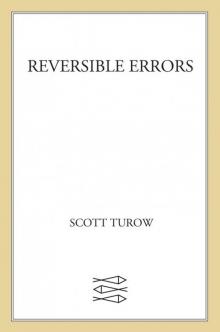 Reversible Errors
Reversible Errors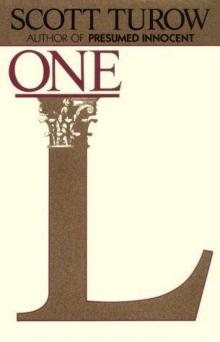 One L: The Turbulent True Story of a First Year at Harvard Law School
One L: The Turbulent True Story of a First Year at Harvard Law School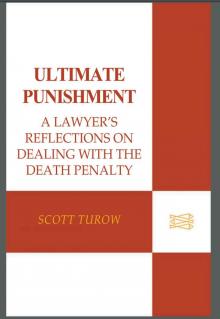 Ultimate Punishment
Ultimate Punishment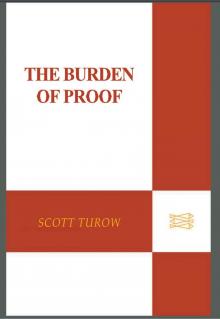 The Burden of Proof
The Burden of Proof Ordinary Heroes (2005)
Ordinary Heroes (2005)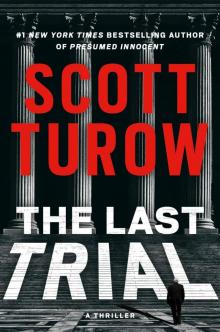 The Last Trial
The Last Trial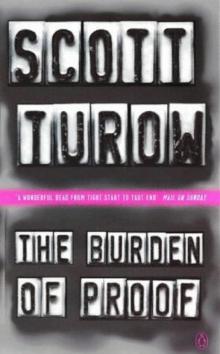 The Burden of Proof kc-2
The Burden of Proof kc-2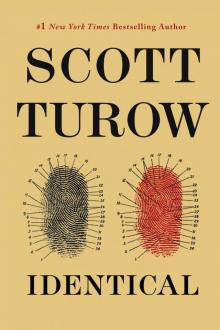 KC09 - Identical
KC09 - Identical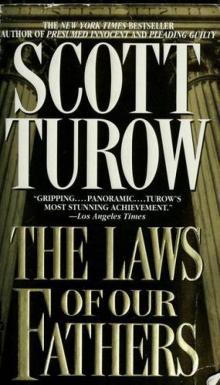 The Laws of our Fathers kc-4
The Laws of our Fathers kc-4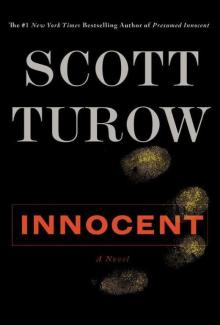 Innocent kc-8
Innocent kc-8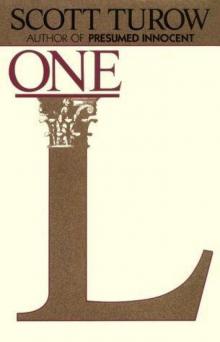 One L
One L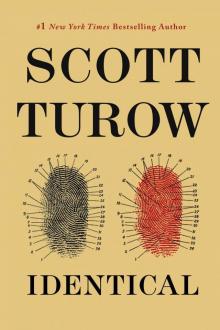 Identical kc-9
Identical kc-9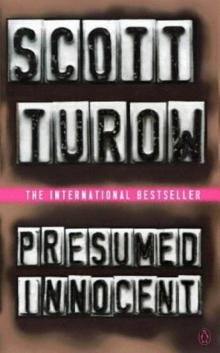 Presumed innocent kc-1
Presumed innocent kc-1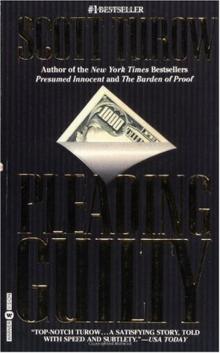 Pleading Guilty kc-3
Pleading Guilty kc-3 One L (1977)
One L (1977)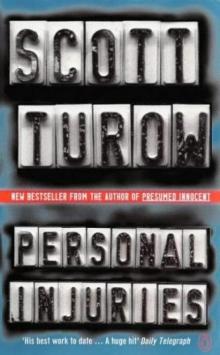 Personal injuries kc-5
Personal injuries kc-5